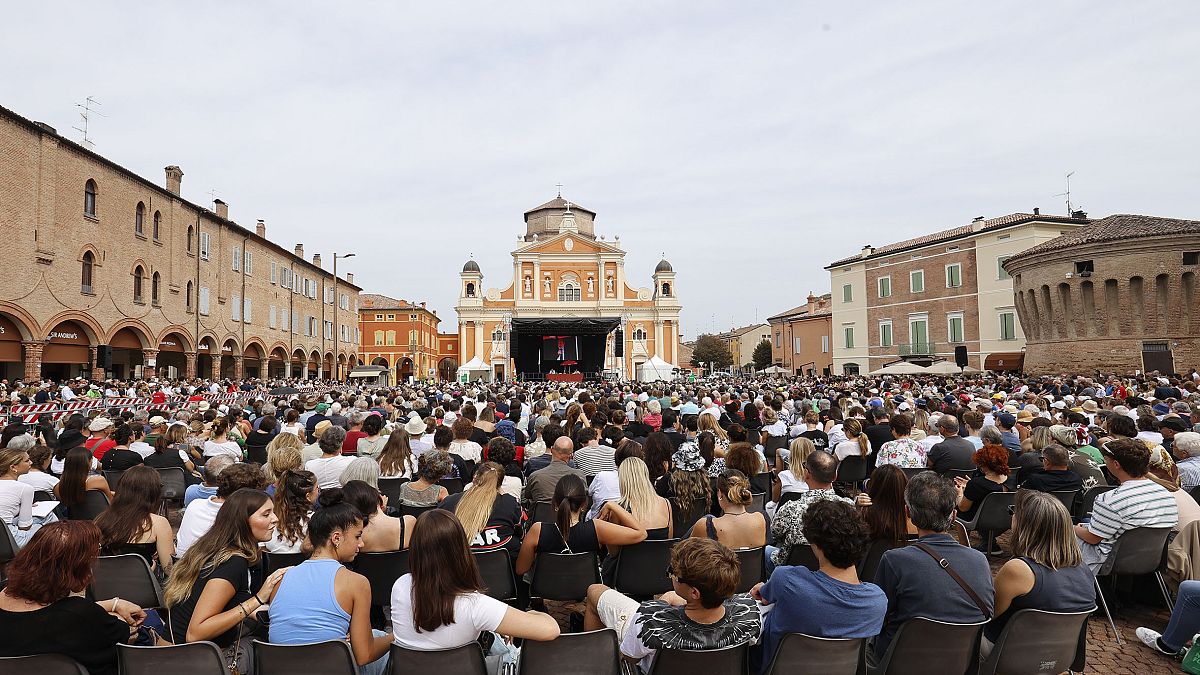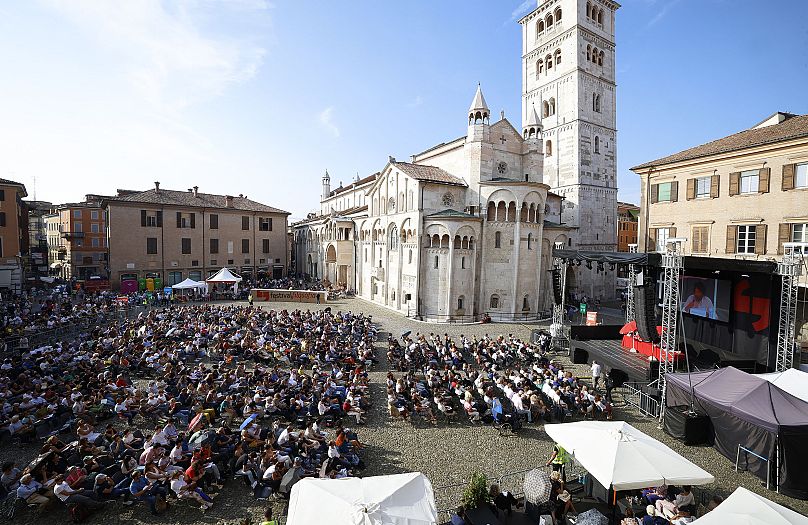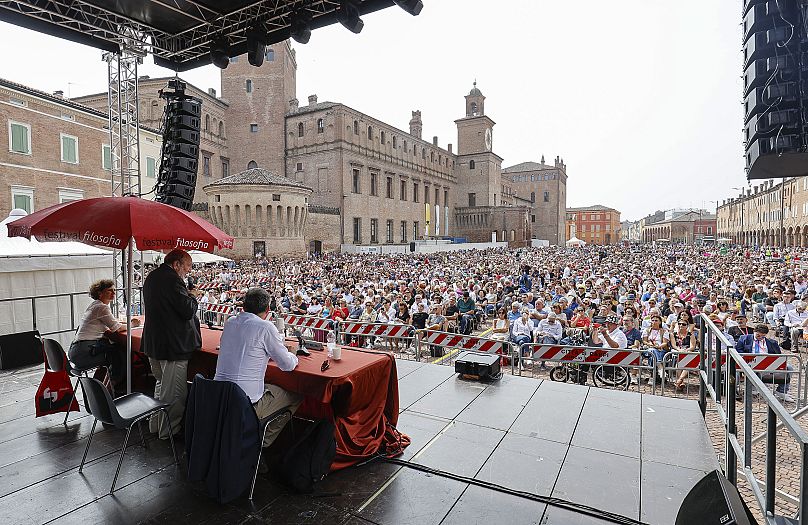This year's Festivalfilosofia held more than 200 events and 50 guests. The 2023 edition focused on the philosophical implications of the word. We take a look back at the event to understand how it linked existential discussions to gender equality and hate speech in today’s Italy.
Despite the variable temperatures and the annoying gnats, this year's Festivalfilosofia was a success, with philosophy enthusiasts gathered in the Italian squares of Carpi, Modena, and Sassuolo to engage in collective existential reflections.
Fuelling their determination was a fully packed and entirely free program: 200 events, including art exhibitions, debates, conferences, movies, and theatre gigs; and more than 50 philosophers coming from all over the world. Among them, there was a balanced mix of the festival's established stars such as Massimo Recalcati and Umberto Galimberti, and some new faces, like David Le Breton and Maryanne Wolf.
The key ingredient that held everything together was the word, the central theme of the 2023 festival.
From Aristotle to Martin Heidegger, but also Jean-Paul Sartre, Hanna Arendt and Rebecca Solnit, philosophers have always focused their attention on languages and communication to gain a deeper understanding of human beings and the society they live in.
As usual, some of this year’s guests remained rooted in classical academic explanations, while others tried to bridge the gap between theory and reality.
But what are the lessons learned from this year’s Festivalfilosofia?
Words: Drivers of inclusion and discrimination
It has been almost a year since the establishment of the Italian far-right government led by Giorgia Meloni. Soon after assuming her position, the first female Prime Minister declined to be referred to as La presidente, the feminine form of the president and instead preferred Il presidente, the masculine version of her role.
This decision sparked debate among Italians. Does the masculine version of a noun add authority? Does it undermine women’s role in society?
In her conference on sex, gender and languages, professor Cecilia Robustelli emphasized that words hold political significance and can either foster inclusion or perpetuate exclusion.
“Our society is founded on gender models that are socially constructed, and language can inadvertently strengthen them through the sexist use of words”, she affirmed. “If a woman is not referred to with her feminine title, then it means she is not recognized as legitimate in her role”.
The intricate ties between gender and language were also explored by Michela Marzano who investigated the difference between consent and concession in Piazza delle Rose in Sassuolo.
“Rapists exist in cultures that let them exist,” she firmly stated during her lesson. “It is hard to deconstruct rape culture. We need to weigh our words”, she continued.
This reflection comes at a fragile time for Italian society. Since the beginning of 2023, the femicide rate has reached 75 victims. The government refuses to take action against the patriarchal system and two weeks ago, after a gang rape in Naples, Giorgia Meloni affirmed: “Eyes open and head on your shoulders. Rapists exist, and we must not let our guard down”.
Words: Hate speech and freedom of speech
Supporters of former US president Donald Trump, the Brexit leader Nigel Farage and the Italian dictator Benito Mussolini, the right coalition represented by Giorgia Meloni has been spreading hate speech against migrants, LGBTQA+ people and vulnerable groups.
In 2022, the video displaying Italian politicians celebrating the failure of DDL Zan, a bill holding hate speakers accountable for their actions, became viral in Italy. Consequently, people started questioning the human rights situation within the country and in other western liberal democracies.
Is there a limit to speech freedom? In democratic systems, is hate a right or a crime?
The sociologist Gisèle Sapiro traced the story of French intellectuals’ engagement in political challenges from the Middle Ages to the present day. According to her, hate speech should not be justified as a form of freedom, not even in liberal countries.
A position shared by other guests of the Festival, like professor Claudia Bianchi, who thoroughly analysed the characteristics of violent words in contemporary society; and Saverio Raimondo, a comedian who investigated the limits of satire and questioned the exaggerated fear of the politically correct in his witty performance for Carpi's audience.
Festivalfilosofia: Mirroring society and sparking questions
At the end of Cecilia Robustelli's lesson, I engaged in an animated discussion with an elderly man seated next to me. According to him, the conference was “too feminist, since today, women have no reasons to complain”.
I normally do not give in to provocations. Yet, during last weekend, public squares looked like the perfect places to build constructive dialogues. Eventually, I turned my head and shared my opinion. For fifteen minutes, my arguments were completely ignored, and I ended up leaving Modena frustrated.
The festival does not make miracles. Listening to a conference does not solve our society's problems and cannot clear our doubts.
Yet, Festivalfilosofia succeeds in mirroring the fractures defining our times and tries to provide us with the tools to better understand them.





